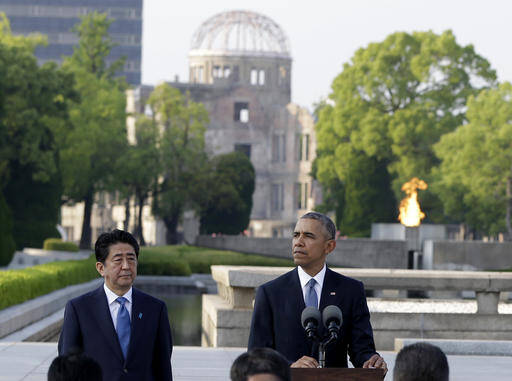It was not the apology critics pre-emptively denounced nor the concrete call for disarmament that anti-nuclear activists had hoped for. The speech given by President Obama at Hiroshima on May 27 was instead a somber reflection on “humanity’s core contradiction”: that what sets us apart as a species, our ability to imagine a better world and to fashion the tools to build it, “also give us the capacity for unmatched destruction.” Standing at the site where one unrestrained technological innovation reached its deadly conclusion, Mr. Obama called for a moral revolution, one that requires more than “mere words.”
It was an honest and challenging speech, worthy of the historic first visit by a U.S. president to the city leveled by the United States in 1945. But it also highlighted what may be the core contradiction of the Obama presidency: His soaring rhetoric has at times been in direct opposition to his policy agenda. He came into office determined to put the United States on a course toward disarmament. But today the U.S. nuclear arsenal is being modernized to the tune of $1 trillion over the next three decades. Nuclear weapons and delivery vehicles are being made smaller and more precise—which may make them more tempting to use.
But even if the United States were never to employ these diabolical weapons, the risks and costs associated with possessing and maintaining a nuclear stockpile are unacceptable. Popes from St. John XXIII to Francis have condemned the squandering of national wealth on arms while millions live in extreme poverty. Seven years ago in Prague, President Obama promised to “take concrete steps towards a world without nuclear weapons.” He has seven months left to follow through on that commitment.








